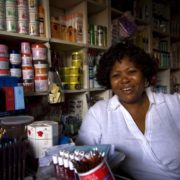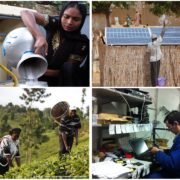Social Business “Build a strong sector by i ...
CERISE and its various partners (AFD, AIDR, CIDR, Entrepreneurs du Monde, Grameen Crédit Agricole Foundation, GRET, I&P, IRAM, PROPARCO) have developed a “Social Business” analysis grid. What purpose does it serve? An interview with Jon Sallé, Program Manager at CERISE.
Social Business is subject to a great deal of enthusiasm on the part of a number of actors (public and private donors, NGOs, companies…). Why is there so much enthusiasm ?
Firstly, it must be said that the underlying idea of this new sector, which is to combine entrepreneurship and social impact, is particularly attractive ! Social business covers a complex range of organizations, which differ in terms of their legal status, their relations towards capital and profit, innovations, etc. All these structures do, however, have one thing in common : the social or environmental issue they tackle must be set out in their social mission.
Social business fits in with the emerging global trend for responsible initiatives.
More informations on “Idées Pour Le Développement” blog, animated by AFD.



